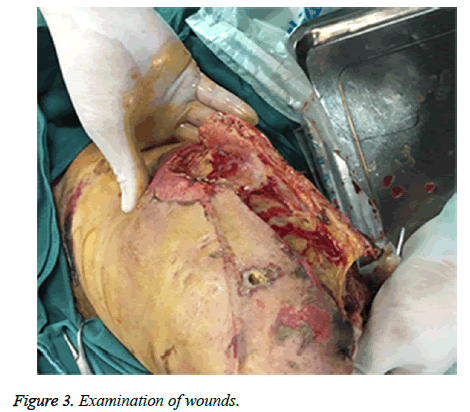
There are no specific medicines for necrotizing fasciitis. Antibiotics and surgery are often needed for patients. If an individual has been in contact with someone who has the disease, they will likely receive an antibiotic to decrease their risk of developing an infection. However, these medications are often too expensive to use for a single patient. Instead, the recommended treatment is to consult a doctor. This article will provide you with information on the different types of Necrotizing Fasciitins available.
The incidence of necrotizing fasciitis varies from person to person. In severe cases, it can even be fatal. If you have the condition, the most important thing is to seek treatment as soon as possible. A patient with this disease may be unable to walk for a few days and may need to undergo multiple surgical procedures to save his or her limb. Some patients may need skin grafts or delayed wound closure, but this is not uncommon.
The incidence of necrotizing fasciitis increased from 1984 through 1999. In addition, it increased among patients who were using an IDU. The mortality rate increases to 60%. For this reason, it is important to receive proper medical care and education. Additionally, you should always seek a second opinion from a trusted doctor. If you are unsure of your diagnosis, seek professional assistance and talk with close friends.
Early treatment is critical for the best outcomes. During the initial stages of the disease, a patient may have mild scarring, while advanced cases may have severe scarring. The skin may become shiny and hard to touch. During these days, the skin can swell to several times its normal size. In the end, it is essential to consult a doctor as soon as possible. If the symptoms are severe enough, a patient will need multiple surgeries, delayed wound closure, or skin grafts.
The outlook for patients with necrotizing fasciitis depends on the severity of the condition. It is extremely important to receive early diagnosis as the infection can be fatal. While a patient's recovery time may vary, they will usually experience minor scarring. Some may even require amputation of a limb. A patient with the condition should seek professional help to avoid complications and to improve their quality of life.
Necrotizing fasciitis is a life-threatening condition caused by bacteria. Infections are characterized by red and swollen tissues and can be fatal. Because of this, early diagnosis is critical. Proper treatment is essential to improve the quality of life for people with necrotizing fasciitis. Patients are advised to take antibiotics and other treatments for their condition. They should also consult with their physician.
Symptoms of necrotizing fasciitis include erythema, pain, induration, and swelling. Patients with a history of injecting drug use should be closely monitored for symptoms. They should be treated for as long as necessary. There are several medications for necrotizing fasciitis. These medications are available on the market and can help prevent this. They can also help people with illness get better. For more information about drugs and treatment for this disease, visit the website https://www.healthbrandsshop.com/id/.
Antibiotics may be injected into infected tissues to reduce the risk of infection. This may allow the symptoms to be treated and the symptoms to stop. The patient must take antibiotics to prevent the spread of the infection. The doctor will also prescribe appropriate medications for the person. If a person is suffering from a type III condition, they should seek treatment for their symptoms as soon as possible.
Treatment for necrotizing fasciitis depends on the severity of the disease. If the patient is not treated, the condition will worsen and the patient may need surgery to repair damaged tissue. In addition, the patient should be prescribed a broad-spectrum antibiotic. In addition, hyperbaric oxygen therapy can help the body fight infection. When combined with antibiotics, these drugs can help patients with this disease.
Treatment for necrotizing fasciitis is usually surgical. This can lead to organ and hematopoietic failure. Although serious, this infection is rarely passed on to other people. Infection can be prevented with common sense and proper wound care. If the cut or bruise is deep, the doctor will need to perform surgery to remove dead tissue. If the infection spreads, antibiotics will be ineffective.